ASTANA – In a little more than three decades, diplomatic relations between Kazakhstan and the United Kingdom (U.K.) have emerged as one of the brightest examples of productive cooperation, expanding into a strategic partnership with a soon-to-be signed Agreement on Strategic Partnership and Cooperation. In its latest analytical piece, Kazinform presents an overview and prospect of the enduring partnership between the two nations.
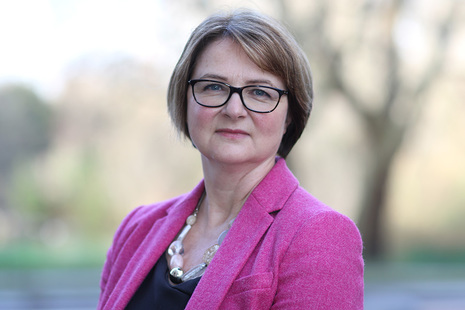
Kathy Leach Аmbassador of the United Kingdom to Kazakhstan. Photo credit: gov.uk.
Аmbassador of the United Kingdom to Kazakhstan, Kathy Leach, told Kazinform that the bilateral partnership covers important issues, including education, energy, critical minerals, climate change, defense and security.
The highlight of this year was the signing of a memorandum of understanding with Kazakhstan on a strategic partnership in the fields of critical minerals and green hydrogen during British Foreign Secretary James Cleverly’s visit to Astana in March. Cleverly also met with President Kassym-Jomart Tokayev and Prime Minister Alikhan Smailov.
In an interview with The Astana Times, Kenan Poleo, the British Consul General and Trade Commissioner for Eastern Europe and Central Asia said that discussions became an important moment in the bilateral relationship.
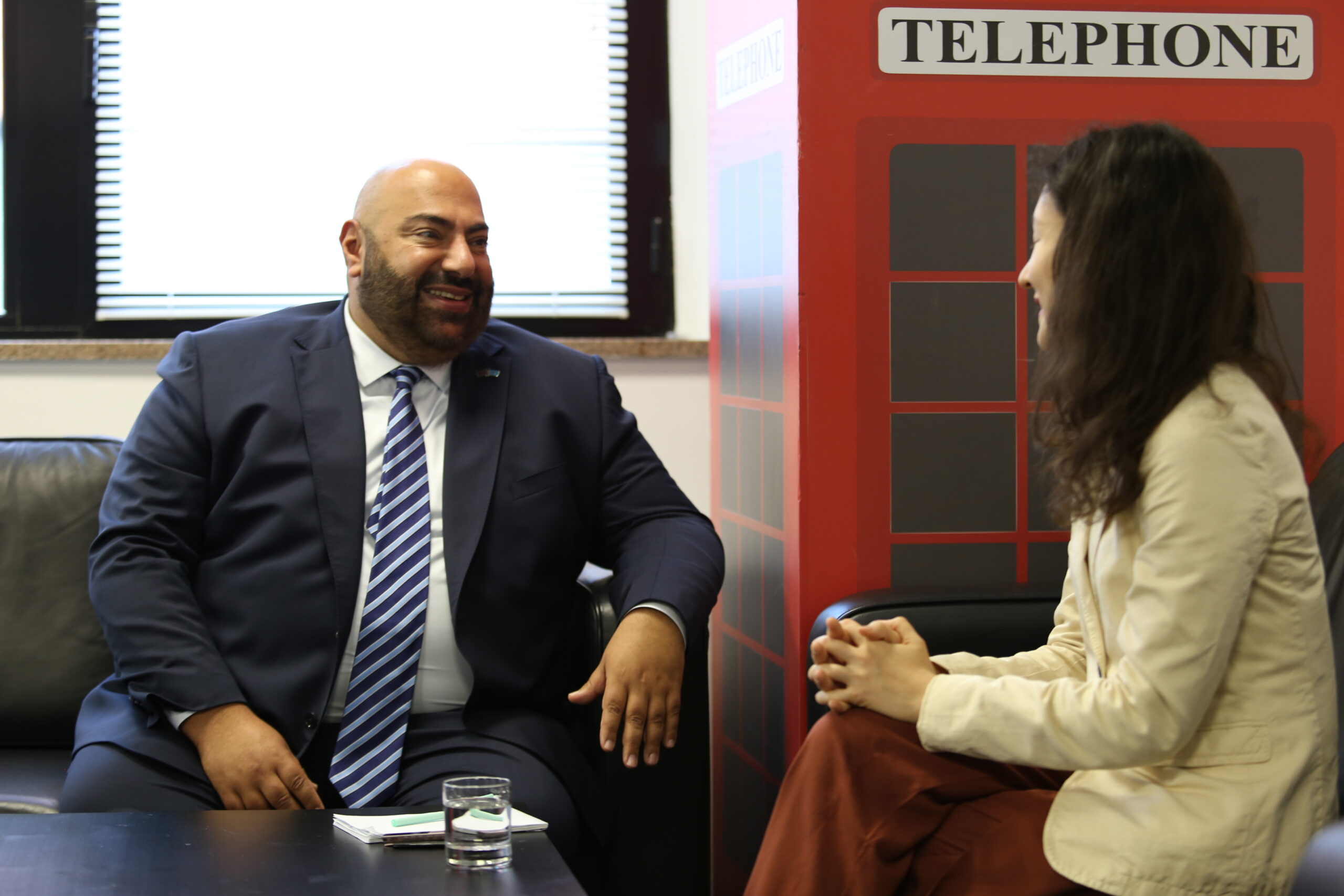
Kenan Poleo during the interview with The Astana Times correspondent Aibarshyn Akhmetkali. Photo credit: British Embassy in Kazakhstan.
“I think it is really important that the visit isn’t just seen as a standalone. The visit is actually setting off a wave of activities and a wave of meetings, really going into detail around what our bilateral relationship looks like, around agri-tech or agriculture, and critical minerals and mining, as well as education,” said Poleo.
U.K. supports reforms in Kazakhstan
Kazakhstan’s recent reforms have received wide support from the U.K. In a joint statement released by the two nations’ foreign ministers in December 2022, U.K. Foreign Secretary James Cleverly expressed support for “the political and socio-economic reforms being carried out in Kazakhstan, aimed at building a just state, a just economy, and a just society.”
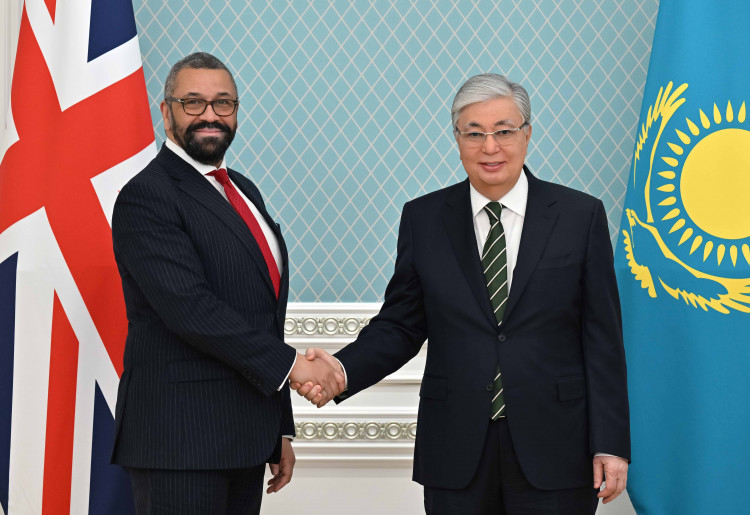
UK Foreign Secretary James Cleverly and President Kassym-Jomart Tokayev meet in Astana on March 18. Photo credit: Akorda.
During a webinar on Kazakh-British relations, Kairat Abdrakhmanov, the High Commissioner on National Minorities of the Organization for Security and Cooperation in Europe (OSCE), said the country’s transformation is associated with the implementation of major political, social, and economic reforms, particularly democratic ones, and the U.K’s support is very significant.
“Having friends in the international arena who understand and support Kazakhstan’s transformation process is perhaps the most important factor for the success of these reforms in the long term,” he said.
Expanding cultural and humanitarian ties
Cultural and humanitarian interaction between the two countries has also gained impetus in recent years. British University De Montfort opened a campus in Almaty in 2021, while a branch of the Scottish University Heriot-Watt will open in Aktobe this autumn.
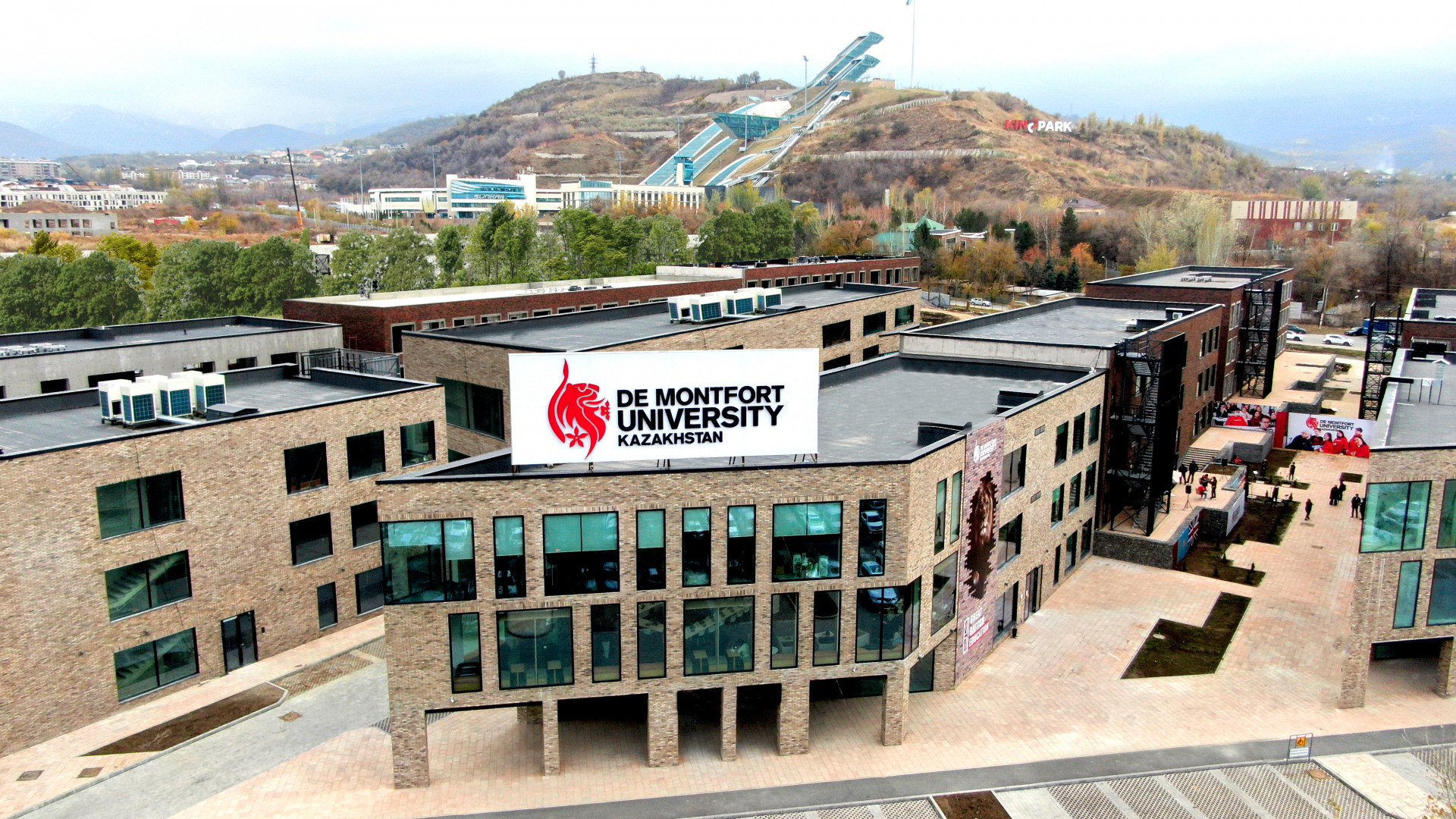
British University De Montfort opened a campus in Almaty in 2021. Photo credit: dmu.edu.kz.
Establishing branches of British universities puts Kazakhstan one step closer to its goal of creating an academic hub to attract young people from neighboring regions with a combined population of nearly two billion people.
The famous Chevening Scholarship Program of the British Foreign Office for young professionals seeking a master’s degree in the U.K. is expanding by 20% this year.
New growth points for bilateral cooperation
Murat Coskun, a European policy researcher at Giresun University in Türkiye, told Kazinform that Kazakh-U.K. relations should prioritize education, finance, scientific research and energy.
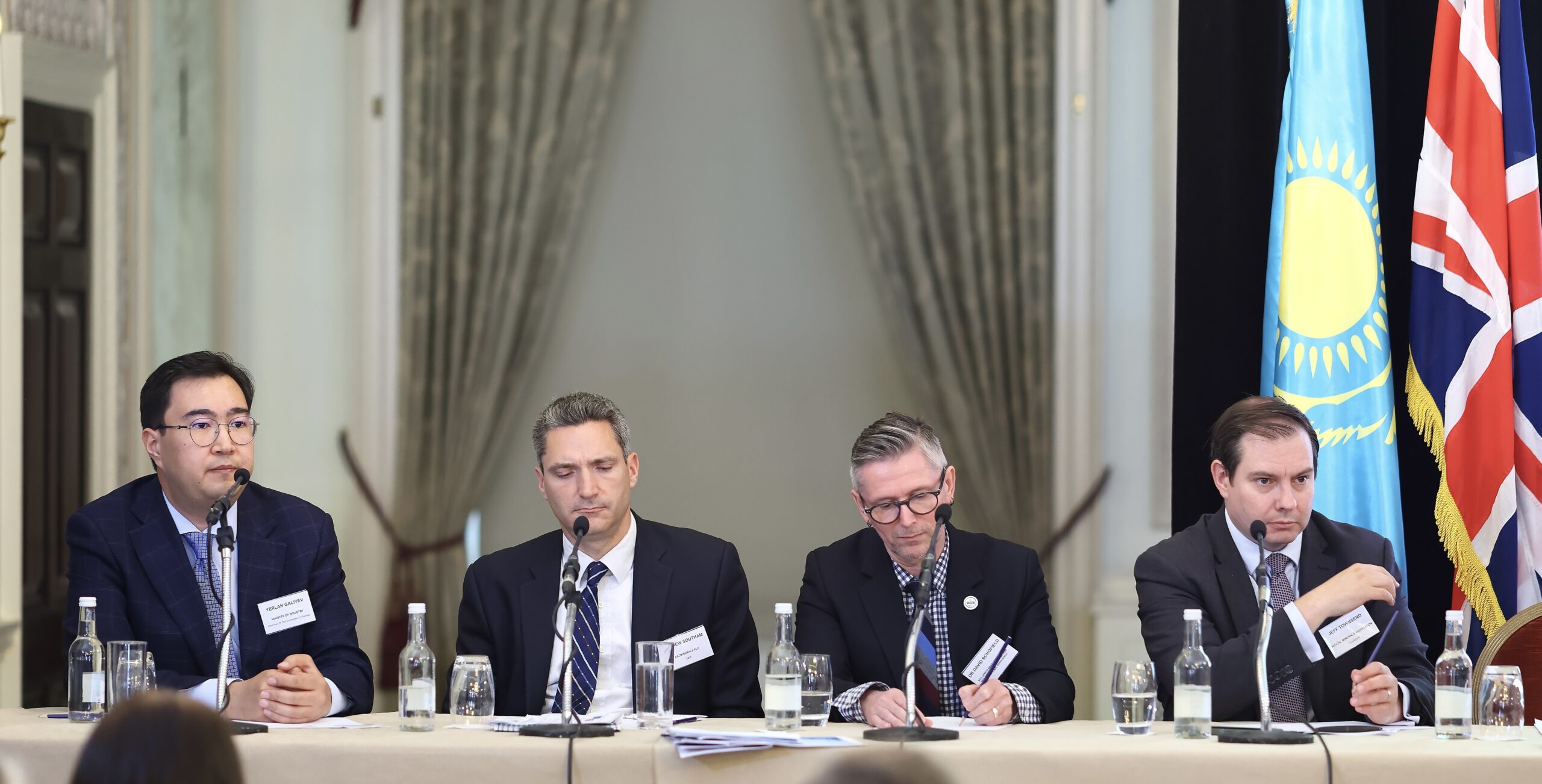
Yerlan Galiyev, Andrew Southam, David Schofield and Jeff Townsend (from left to right) on Mining Business Forum in London. Photo credit: Kazakh Embassy in London.
“Such partnerships should include the joint development of new technologies as well as technology transfer,” Coskun said.
According to him, increasing Kazakhstan’s relationship with the U.K. in these areas will not only boost Astana’s ties with the European Union but will also allow it to assume a more advantageous negotiation stance in relations with China, one of the world’s most powerful economies.
“Establishing relationships with the U.K. could pave the road for similar collaborations with other Western countries as well as the EU. This is especially crucial given that the EU is more bound by its rules and regulations, and a proven working cooperation with the U.K. might help the EU make choices more easily,” Coskun explained.
Experts also see cooperative extraction and processing of essential minerals, which are now in short supply in the British industry, as a promising area of trade and investment cooperation between the two countries.
Jeff Townsend, the founder of the British Association of Critical Minerals, speaking at the recent Kazakhstan-British Business Forum, considers Kazakhstan as a “good market to work in” with a stable state system and major infrastructure investment, accounting for 60% of regional GDP.
He said that four of the 18 most important minerals selected by the British Geological Survey (bismuth, gallium, rare earth elements, silicon) are produced in Kazakhstan, and ten elements have been explored – vanadium, tungsten, tin, tantalum, niobium, magnesium, lithium, indium, graphite, cobalt.
Magzhan Ilyasov, Kazakhstan’s Ambassador to the U.K., said that British enterprises investing in high-value-added products will receive the most support.
Middle Corridor and easing visa requirements
The Group of Seven (G7) Communiqué issued during the G7 summit in May highlighted the countries’ commitment to increasing trade and energy cooperation with Central Asian countries, including sustainable transport links and the Trans-Caspian International Transport Route, also known as the Middle Corridor.
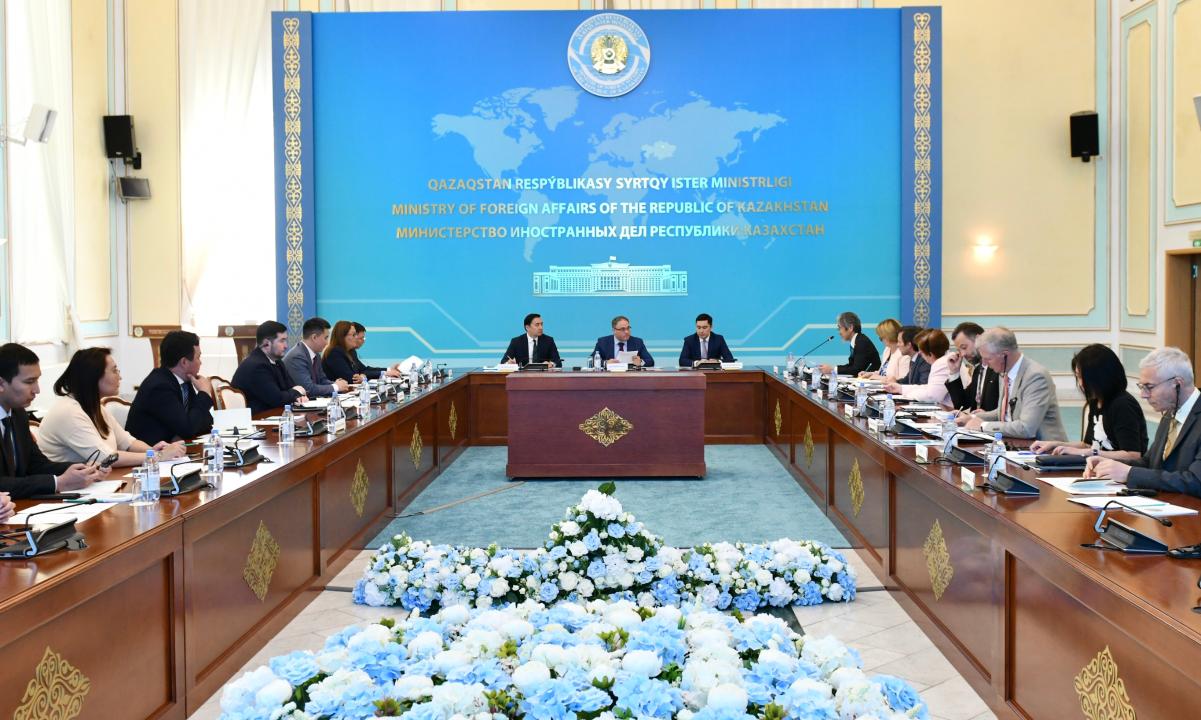
The outcomes of the 49th Group of Seven (G7) Summit on May 19-21 in Hiroshima were discussed at a briefing of the heads of diplomatic missions of the G7 countries. Photo credit: MFA’s press service.
Poleo believes that the Middle Corridor project can assist in boosting trade sustainability by improving connectivity to the entire region via Türkiye and beyond.
“For the U.K., this is an opportunity not just to encourage infrastructure investment but also to support a political accord to establish a reliable commercial, logistical route for Central Asia,” he said.
Another key component of the bilateral agenda is easing visa rules for Kazakh citizens, which reflects the U.K.’s will to establish open ties, thereby creating a favorable basis for human engagement and business development.
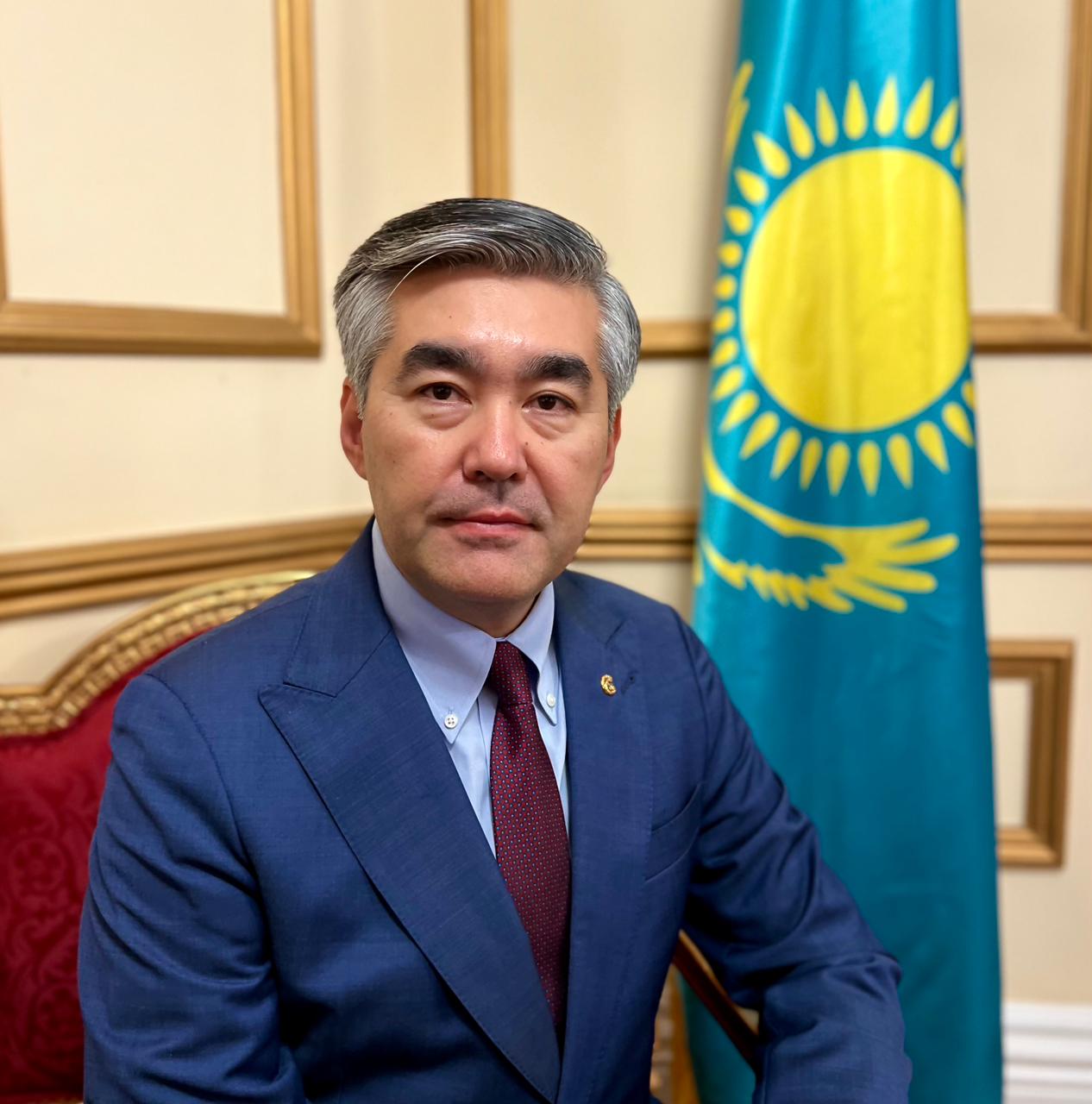
Magzhan Ilyasov, Kazakhstan’s Ambassador to the U.K. Photo credit: Kazakh Embassy in London.
“The subject of facilitating Kazakh citizens’ visa regime with the U.K. is on the agenda. We raised this issue during the Foreign Minister’s visit to London in December and again in January at the intergovernmental commission. We will bring it up again in autumn as part of interdepartmental political consultations,” Ilyasov told Kazinform.
Meanwhile, this delicate issue falls within the competence of the U.K. Home Office, led by Swella Braverman, known for her stern stance on migration issues.
For its part, Kazakhstan opted to unilaterally establish a visa-free regime for British citizens nearly a decade ago. It is now up to London to take action on the visa issue and demonstrate how far the British partners are willing to go in their cooperation with Astana.

